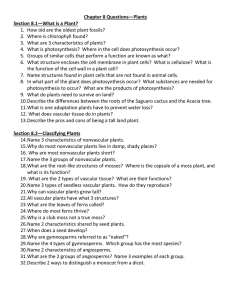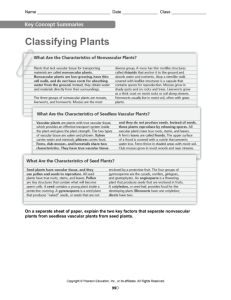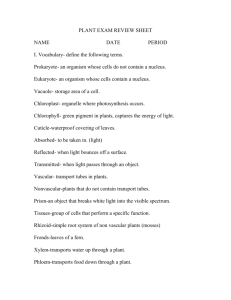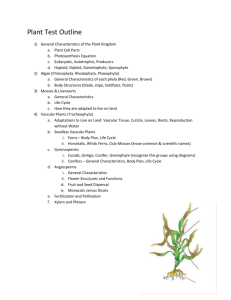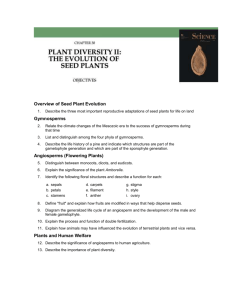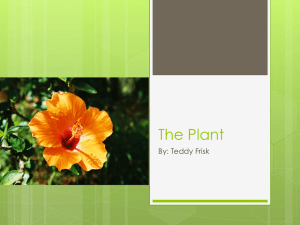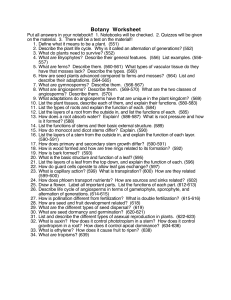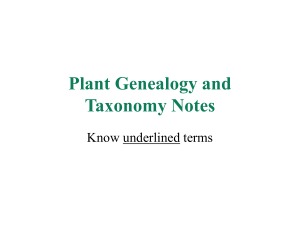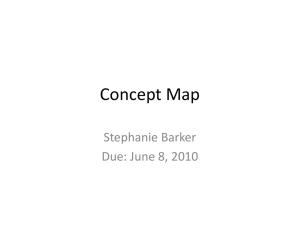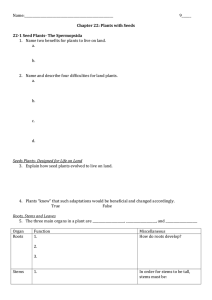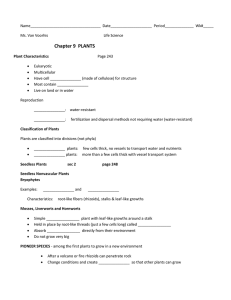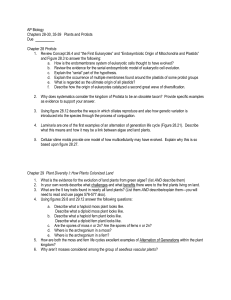Name Date Bell Unit 7: Plant Kingdom Textbook Relay Section 8
advertisement
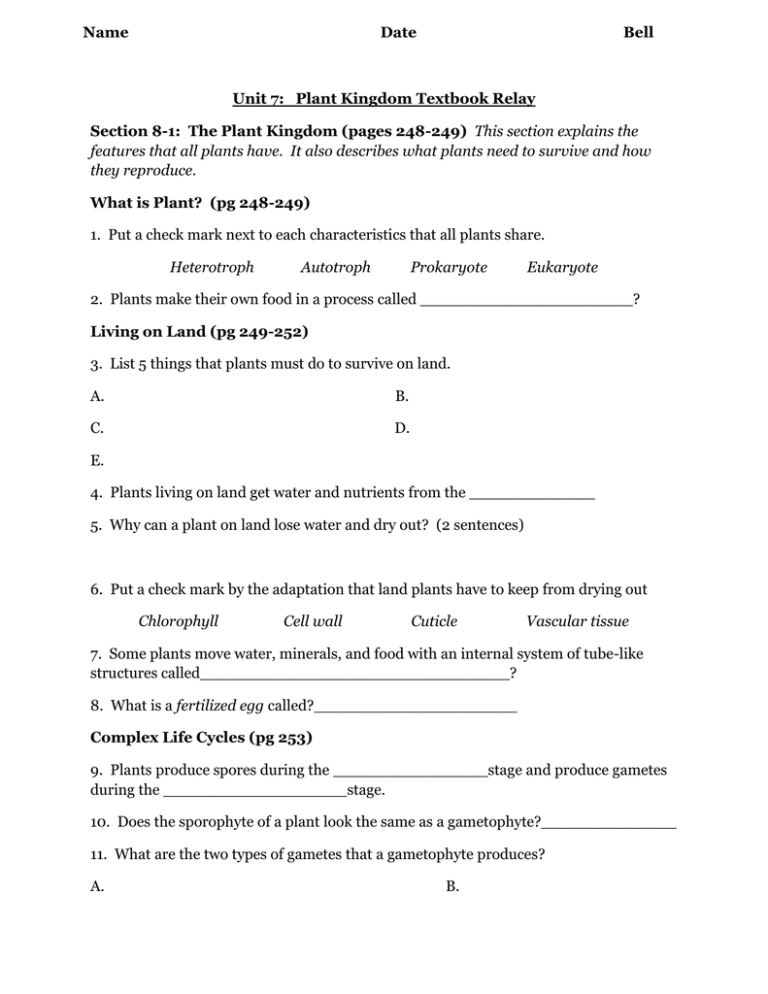
Name Date Bell Unit 7: Plant Kingdom Textbook Relay Section 8-1: The Plant Kingdom (pages 248-249) This section explains the features that all plants have. It also describes what plants need to survive and how they reproduce. What is Plant? (pg 248-249) 1. Put a check mark next to each characteristics that all plants share. Heterotroph Autotroph Prokaryote Eukaryote 2. Plants make their own food in a process called ______________________? Living on Land (pg 249-252) 3. List 5 things that plants must do to survive on land. A. B. C. D. E. 4. Plants living on land get water and nutrients from the _____________ 5. Why can a plant on land lose water and dry out? (2 sentences) 6. Put a check mark by the adaptation that land plants have to keep from drying out Chlorophyll Cell wall Cuticle Vascular tissue 7. Some plants move water, minerals, and food with an internal system of tube-like structures called________________________________? 8. What is a fertilized egg called?_____________________ Complex Life Cycles (pg 253) 9. Plants produce spores during the ________________stage and produce gametes during the ___________________stage. 10. Does the sporophyte of a plant look the same as a gametophyte?______________ 11. What are the two types of gametes that a gametophyte produces? A. B. Section 2: Mosses, Liverworts, and Hornworts (pg 256-260) Characteristics of Nonvascular Plants (pg 256-257) 12. List 2 characteristics of nonvascular plants A. B. 13. Can vascular plants pass materials from one cell to the next? ______________ 14. Put a check next to each structure that provides support for vascular plants. roots stems vascular tissue 15. How do nonvascular plants get water? (2 sentences) Mosses (pg 257-258) 16. Circle and label the gametophyte and the sporophyte in the diagram of the moss. 17. Thin rootlike structures that anchor moss and absorb water and nutrients from the soil are called_______________? 18. Put a check next to each way that people use peat moss. as food in gardening as a fuel as cloth 19. Define peat moss: 20. Why are mosses called pioneer plants? (2 sentences) cell wall Characteristics of Seedless Vascular Plants (pg 262-263) 21. List two characteristics that ferns, club mosses, and horsetails share. A. B. Ferns (pg 263-264) 22. Define Fern: 23. The stems of most ferns are located ________________. Leaves grow _______________from the top side of the stems, and roots grow _____________ from the bottom of the stems. 24. Label the parts of a fern in this diagram> What is a seed plant? (pg 274-275) 24. Put a check next to the letter of each sentence that is true about seed plants. A____ Seedless plants outnumber seed plants. B.____ Seed plants do not have vascular tissue. C.____ Seed plants use seeds to reproduce. D.____ All seed plants have roots, stems and leaves. 25. In seed plants, the plants that you see are in the __________________stage of the life cycle. The ______________stage is microscopic. Vascular Tissue (pg 275) 26. Give two ways that vascular tissue help seed plants to live on land? A. B. What are Gymnosperms? (pg 284) 27. Define Gymnosperms: 28. Do Gymnosperms have seeds that have a protective covering? What are Angiosperms? (pg 289-290) 29. Define Angiosperms: 30. Place a check mark next to each reproductive structure of an angiosperm. Seed Flower 31. List two characteristics of angiosperms A. B. Tropisms (pg 297-298) 32. Define Tropisms: 33. What is a negative tropism? Petals Sepals
